Daily award presentations during the ATS 2024 International Conference recognize exemplary contributions to respiratory health and elevate the influential work of this year’s honorees.
The Opening Ceremony on Saturday, May 18, included the presentation of the Jo Rae Wright Award for Outstanding Service, the Public Service Award, the World Lung Health Award, and the J. Randall Curtis Humanism Award, as well as recognition of the latest class of ATS Fellows and ATS Research Program awardees.
On Sunday, May 19, the Awards Ceremony will feature the J. Burns Amberson Lecture, the Edward Livingston Trudeau Medal, and the Distinguished Achievement Award at 4:30 p.m.
The four recipients of the Recognition Award for Scientific Accomplishments will be the featured speakers at a dedicated session at 2:15 p.m. Monday, May 20.
The Outstanding Educator Award, the Outstanding Clinician Award, and the Research Innovation and Translation Achievement Award will be given during the Plenary Session at 11:45 a.m. Tuesday, May 21.
Recipients are selected with an emphasis on efforts that have the potential to eliminate health disparities.
Jo Rae Wright Award for Outstanding Science
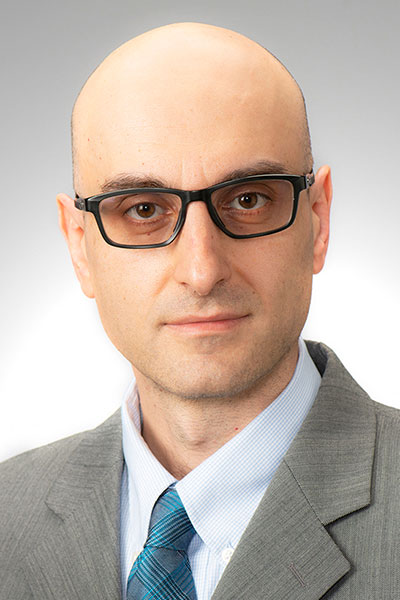
Georgios Kitsios, MD, PhD
The Jo Rae Wright Award for Outstanding Science is a tribute to the work of early career respiratory health professionals. Aimed at tomorrow’s leaders in science, the award recognizes the demonstrated potential for significant achievement and contributions among those who are beyond postdoctoral fellowship but not above the rank of assistant professor or the equivalent.
This year’s honoree, Georgios Kitsios, MD, PhD, is an assistant professor of medicine in the Division of Pulmonary, Allergy, and Critical Care Medicine at the University of Pittsburgh.
Originally from Greece, Dr. Kitsios started his medical journey at Aristotle University, where he received his medical degree, and then pursued graduate studies in the U.S. at Tufts University and completed his internal medicine training at Lahey Clinic in Boston. He then made his way to Pittsburgh, where he completed his fellowship in pulmonary and critical care medicine and transitioned into a faculty role at the University of Pittsburgh, where he continues to contribute.
His academic pursuits epitomize the privilege of working as a physician-scientist: a practicing physician and bedside teacher in the ICU, and a dedicated researcher in the lab conducting translational research in critical illness. His research focuses on developing sensitive and accurate molecular diagnostics for pneumonia, understanding the role of respiratory and gut microbiota in the evolution and outcome of critical illness, and deriving host-response phenotypes of critical illness syndromes, for better therapeutic targeting. Dr. Kitsios said he sees himself as a perpetual student of medicine, driven by relentless curiosity to uncover new scientific insights, and a passion with a profound sense of mission to improve patient care.
Public Service Award
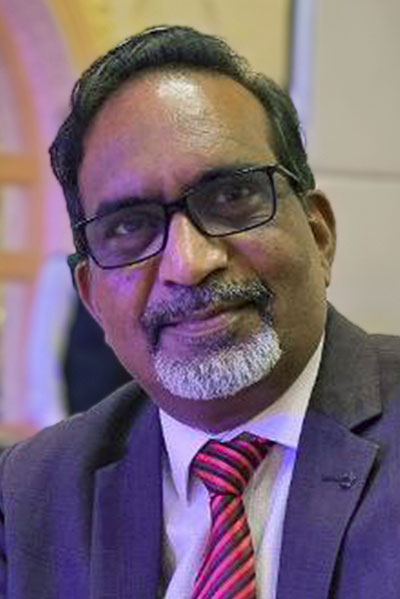
Raj Kumar, MBBS, MD, FAMS, MNASc, MNAS, FICCAI, FICS, FNCCP(I), MAAAAI, MACAAI
The Public Service Award is presented in recognition of contributions to public and population health equity related to lung diseases, sleep health, or critical care. This year’s recipient is a leading pulmonologist from India engaged in research, teaching, and patient care. Raj Kumar, MBBS, MD, FAMS, MNASc, MNAS, FICCAI, FICS, FNCCP(I), MAAAAI, MACAAI, is currently serving as the director of Vallabhbhai Patel Chest Institute (VPCI), a national-level postgraduate medical college devoted to chest diseases and allied sciences.
As a compassionate chest physician, Dr. Kumar has cared for the environment and communities we live in and has worked on the prevention of chest diseases through patient care services; tobacco quitline services; research on the effects of pollution, allergens, cooking, and lifestyle habits on respiratory health in various communities; community through health camps; and more. He has 30 years of experience in patient care, including outpatient, inpatient, and critical care management of respiratory diseases employing the latest techniques in bronchoscopy, allergy testing, sleep studies, spirometry, radio-diagnosis, and other tools. He is the co-coordinator of a tobacco cessation clinic and spearheaded the establishment of National Tobacco Quitline Services, a toll-free, non-judgmental telephone-based counseling service offering support to quitters across India. His personal efforts also led to the establishment of the National Centre of Respiratory Allergy and Applied Immunology at VPCI.
Dr. Kumar’s research interests focused on public health-oriented topics such as allergic bronchopulmonary aspergillosis, food allergy, respiratory allergy, immunotherapy, indoor and outdoor air pollution, and smoking cessation. Among his notable contributions are the identification of various proteins among Culvaularia species and finding significant cross-reactivity among proteins of C. lunata, A. alternata, and E. nigrum; reporting of 16% ABPA and classification for the first time in India as mild, moderate, and severe ABPA forms, which was recognized with the prestigious David A. and Julie A. Stevenson Scholar award in Greece; isolation; differentiation between food allergy and food intolerance, and reporting perceived food allergy as being 60% while actual food allergy being about 4% in India; studying and analyzing the impact of active and passive tobacco smoking, various cooking fuels versus cow dung, wood, and LPG gas on respiratory health and early diagnosis in north India’s villages; being instrumental in the development of guidelines on allergen immunotherapy, COPD, bronchial asthma, spirometry, diagnosis of respiratory allergy, tobacco dependence treatment guidelines, and more.
Dr. Raj Kumar has authored and edited 22 books, 48 abstract books, and newsletters. He has published 545 publications, including research papers, and supervised the thesis of 49 DM, MD, and PhD scholars. He has been the principal investigator of many government-funded research projects. He has organized 173 conferences, workshops, and public awareness programs. He also is the recipient of more than 30 national and international awards.
World Lung Health Award
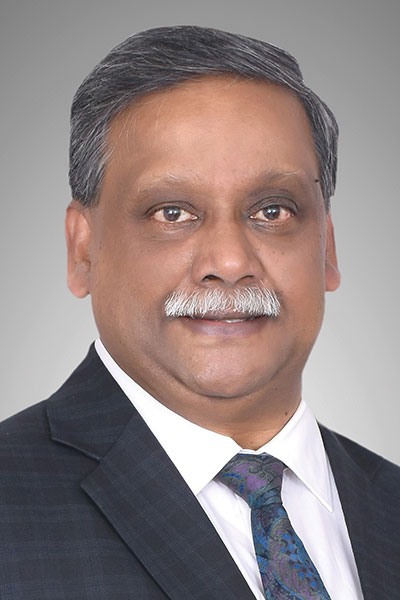
Sundeep Santosh Salvi, MD, PhD, Hon. FRCP, FICS, FCCP
The World Lung Health Award honors contributions to improving world lung health in the area of translational or implementation research, delivery of health care, continuing education or care of patients with lung disease, or related political advocacy with a special emphasis on efforts that have the potential to eliminate gender, racial, ethnic, or economic health disparities. The 2024 award honors Sundeep Santosh Salvi, MD, PhD, Hon. FRCP, FICS, FCCP, director of the Pulmocare Research and Education (PURE) Foundation and a distinguished professor of research at the Symbiosis International University in Pune, India.
After completing his medical degree in respiratory medicine in India, Dr. Salvi obtained a PhD in clinical medicine from the University of Southampton in the United Kingdom, where he investigated the cellular and molecular changes occurring in the human lung after short-term exposure to diesel exhaust. He returned to India in 2002 and set up the Chest Research Foundation, where he contributed to pioneering research in the field of asthma, COPD, and air pollution. His seminal contribution has been in the field of non-smoking COPD, where he showed that indoor and outdoor air pollution are major contributors to COPD in low- and middle-income countries, and that non-smoking COPD is a different phenotype than smoking COPD.
Dr. Salvi serves as the chair of the Chronic Respiratory Diseases Section of the Global Burden of Disease for India and highlighted the huge and growing burden of asthma and COPD not only in India but across low- and middle-income countries. He serves as a member of the Board of Directors of the Global Initiative for Chronic Obstructive Lung Disease and as a member of the Scientific Committee of the Global Initiative for Asthma. He is a passionate teacher and takes a keen interest in creating awareness in the lay community and educating doctors from across the world on the importance of lung health. He has trained more than 25,000 doctors on diagnosis, management, and prevention of asthma, COPD, and spirometry. More recently, he has spread awareness about oscillometry as the future respiratory diagnostic tool. He is currently the president of the Indian Chest Society and has received several national and international awards. He is ranked in the top 0.1% of respiratory scientists globally and No. 1 in India according to the latest Stanford University rankings.
J. Randall Curtis Humanism Award
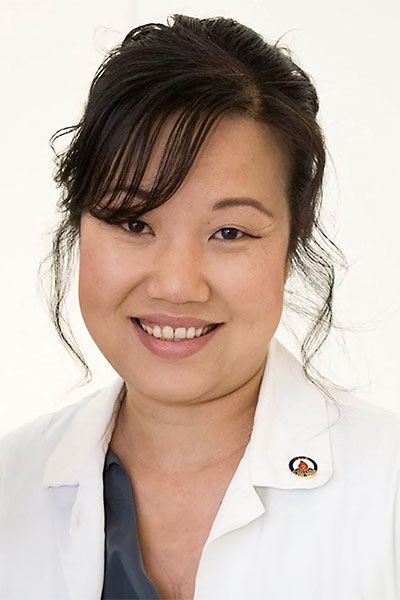
Thanh H. Neville, MD, MSHS
Named for a past president of the ATS, the J. Randall Curtis Humanism Award celebrates individuals who are exemplars of humanism in health care by recognizing work that reflects the ideals of compassion, humanism, and mentorship espoused by Dr. Curtis. Honorees demonstrate professional and personal skills, and engage in professional and academic activities that reflect exceptional mentoring skills; compassionate delivery of patient care; competence in scientific endeavors; respect for patients, families, and colleagues; the values of diversity, equity, and inclusion in their daily work and life; effective, empathic communication and listening skills; and service to their community. Thanh H. Neville, MD, MSHS, associate professor in the Division of Pulmonary and Critical Care Medicine at the University of California, Los Angeles, David Geffen School of Medicine, is this year’s honoree.
Dr. Neville came from humble beginnings: she was a refugee from Vietnam and was raised by parents who barely had an elementary school education. She learned English in the first grade, grew up on food stamps, and went to school on grants, scholarships, and loans. She is now a National Institutes of Health-funded physician-scientist at UCLA. She has been at UCLA since medical school. She also completed her internal medicine residency, pulmonary-critical care fellowship, and Masters in Health Services there.
Dr. Neville’s research interest is in improving communication and palliative care in the ICU In 2017, she launched the 3 Wishes Program and currently serves as its medical director. In this initiative, health care workers are empowered to elicit and implement small, but meaningful wishes for dying patients and their families. Although tasks like decorating a dying patient’s room, coordinating a date night, or creating a personalized keepsake for a grieving family are not typically thought of as “medical” care, these acts of kindness have been shown to leave lasting, powerful impacts on families and health care workers. In many ways, the 3 Wishes Program allows health care workers to continue providing compassionate patient and family-centered care when medicine and technology have reached their limits.
Last year, Dr. Neville received an NIH R01 award to implement and evaluate the 3 Wishes Project in three Los Angeles Department of Health Services hospitals. She hopes that this patient-centered and clinician-partnered initiative can also improve the end-of-life experience for patients, families, and clinicians in low-resource hospitals.
J. Burns Amberson Lecture
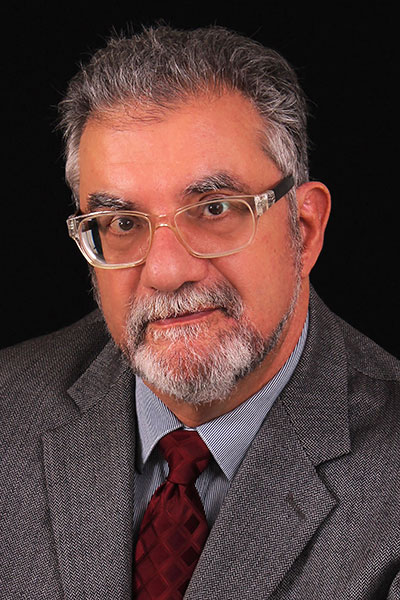
Moisés Selman, MD
Moisés Selman, MD, was selected to deliver the 2024 J. Burns Amberson Lecture. Named for James Burns Amberson, an international authority on chest disease and tuberculosis, this lecture recognizes major international lifetime contributions to clinical or basic research that have advanced the fundamental understanding of basic, translational, or clinical approaches to respiratory disease, critical illness, or sleep disorders.
Dr. Selman earned his medical degree at the University of Chile and trained in pulmonary medicine at the National Autonomous University of Mexico. He joined the Instituto Nacional de Enfermedades Respiratorias in Mexico, where established the first Research Branch, and since 1983, he has served as the director of the Interstitial Lung Diseases Program.
Dr. Selman has had a longstanding interest in ILDs, mainly in idiopathic pulmonary fibrosis, where he has made important contributions both in the clinical area as well as in the pathogenic mechanisms of disease, and has earned international recognition as one of the foremost experts in pulmonary fibrosis. He has served as a member of the Review Committee of Protocols on IPF of the NIH.
He has published about 300 original papers, reviews, and book chapters, and was the associate and deputy editor of the Blue Journal. Dr. Selman has achieved several distinctions, including the National Prize in Sciences and the Recognition Award for Scientific Achievement of the ATS. In 2015 he was elected to the Association of American Physicians. Most recently, the Mexican Secretary of Health honored Dr. Selman by naming the research unit of its institute as the Dr. Moises Selman Building of Respiratory Research.
Among his key scientific achievements is the proposal that IPF, historically considered as a fibrosis caused by unresolved chronic inflammation, was an epithelial-driven fibrosis. He participated in the first genomic studies performed in IPF and contributed to the pioneering research identifying the transcriptional signatures that distinguish some of the fibrosing lung diseases.
Dr. Selman has also focused on the role of aging in lung behavior, studying a large cohort of individuals over 65 years and models of natural and accelerated aging. Based on this research, he coined the term “fibroaging” to describe a pathologic characteristic associated with aging, which was incorporated in the recently published “Hallmarks of Aging.” More recently, he published a provocative proposal suggesting that usual interstitial pneumonia should be considered as a stand-alone diagnostic entity.
Dr. Selman has served on multiple international working groups, including for the ATS, ERS, and ACCP. He was a founding member of the Latin American Thoracic Association and was president of the Mexican Society of Pulmonology.
Dr. Selman is passionate about training physician-scientists and has received numerous accolades as an outstanding teacher, mentor, and physician. He established a highly regarded course on interstitial pulmonary diseases at the Faculty of Medicine at the National Autonomous University of Mexico. He currently is a distinguished investigator in its institute.
Edward Livingston Trudeau Medal

David S. Wilkes, MD
The Edward Livingston Trudeau Medal recognizes major contributions to the prevention, diagnosis, and treatment of lung disease, critical illness, or sleep disorders through leadership in research, education, or clinical care, and acknowledges exemplary professionalism, collegiality, and citizenship in the ATS community. The Trudeau Medal is the highest honor bestowed by the ATS and is given in honor of Edward Livingston Trudeau, a founder and the first president of the American Lung Association.
David S. Wilkes, MD, is this year’s Trudeau Medal honoree. Dr. Wilkes is a researcher, mentor, sponsor, educator, administrator, and executive. A member of ATS since 1989, he has served on the Board of Directors, as chair of the Allergy, Immunology Inflammation Assembly, and as a member or chair of multiple ATS committees. An elected member of the National Academy of Medicine, from 2015 to 2021, he served as the Dean and James Carroll Flippin Professor of Medical Science at the University of Virginia School of Medicine. Currently, he is Dean Emeritus at the UVA School of Medicine.
Since 2013, Dr. Wilkes has served as the national director of the Harold Amos Medical Faculty Development Program for the Robert Wood Johnson Foundation, the nation’s eminent program developing the careers of underrepresented in medicine physician-scientists, dentist-scientists, and nurse-scientists. Dr. Wilkes has served on multiple NIH study sections as well as on the Board of Scientific Counselors at the National Heart, Lung, and Blood Institute and the National Advisory Council for the National Institute of Allergy and Infectious Diseases. He has received numerous awards for his work in diversity and inclusion.
The Wilkes lab was the first to describe autoimmunity in the pathogenesis of lung transplant rejection. Dr. Wilkes has co-authored more than 140 research papers, holds six U.S. patents, and is the founder of ImmuneWorks, Inc., a biotech company developing novel treatments for immune-mediated lung disease. He is a scientific advisor and consultant to multiple biotech companies.
Before the University of Virginia, Dr. Wilkes was the executive associate dean for research affairs at the Indiana University School of Medicine and assistant vice president for research at Indiana University. He was also the director of the Indiana University School of Medicine’s Physician Scientist Initiative. He is a professor of medicine emeritus at Indiana University and currently serves on the Board of Visitors of the Lewis Katz School of Medicine at Temple University and the Board of Trustees at Villanova University. He is a current member of the Board of Directors for Baxter International.
Dr. Wilkes obtained his undergraduate degree in biology from Villanova University before receiving his medical degree from the Lewis Katz School of Medicine at Temple University. He completed an internship and residency at Temple University Hospital and a pulmonary and critical care fellowship at the University of Texas Southwestern Medical Center.
A military veteran, Dr. Wilkes served three years as a major in the U.S. Air Force Medical Corps, where he earned a commendation medal for service. In addition to traveling with his wife, he is passionate about road cycling and collecting exotic cars.
Distinguished Achievement Award
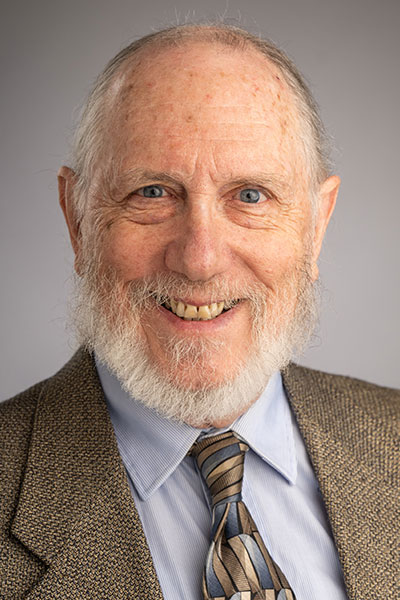
Jeffrey L. Curtis, MD, ATSF, FERS | Sonye K. Danoff, MD, PhD, ATSF, FCCP
There are two recipients for this year’s Distinguished Achievement Award: Jeffrey L. Curtis, MD, ATSF, FERS, and Sonye K. Danoff, MD, PhD, ATSF, FCCP. The award recognizes outstanding contributions to the advancement of the ATS mission through a single major accomplishment or a cumulative impact on the field. Awardees have substantially contributed to the prevention, diagnosis, and treatment of lung disease, critical illness, or sleep disorders through leadership in research, education, or clinical care.
Dr. Curtis is a professor of internal medicine in the Pulmonary & Critical Care Medicine Division at Michigan Medicine/University of Michigan Medical School and the VA Ann Arbor Healthcare System, and a faculty member in the Rackham Graduate Program in Immunology. He trained at Georgetown, where he received his medical degree; Johns Hopkins Bayview, where he completed his internal medicine residency and was chief resident; NIH/NIA, where he focuses on clinical immunology; and the University of California, San Francisco, where he focused on pulmonary and critical care medicine.
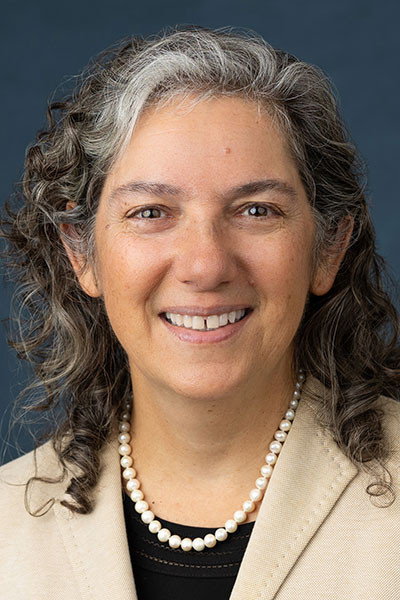
In 1990, Dr. Curtis was recruited to Ann Arbor, where he was VA section chief (1990-2014) and scientific director of a Research Enhancement Award Program center in tobacco-induced lung diseases (1999-2012). He continues to work at VA Ann Arbor as director of the Cooperative Studies Program Network of Designated Enrollment Sites. During the recent COVID-19 pandemic, he led the VA Coronavirus Research and Efficacy Studies network and now serves as a member of the Executive Committee of VA SHIELD, the new national biorepository.
Within ATS, Dr. Curtis has been the chair-elect/chair of the AII Scientific Assembly (2010-2013); a member of the Scientific Advisory Committee (2007-2013); an instructor in MECOR China (2015-2019); and, since 2017, the associate editor of the American Journal of Respiratory and Critical Care Medicine. Between 1993 and 2014, he organized and co-chaired 12 symposia and post graduate courses at ATS International Conferences.
A highlight of Dr. Curtis’s professional life has been the opportunity to mentor young scientists, including recipients of seven VA Career Development awards and three K awards, 13 post doctoral fellows, and 18 thesis committees, two of which were international.
Dr. Curtis’s investigative career focuses on innate and adaptive immunity in lung host defense and in COPD pathogenesis. Through continuous funding from the VA and NIH since 1988, he has performed basic and translational studies using multiple murine models and human tissue. Additionally, since the late 1990s, he has held leadership roles in multiple NHLBI-funded COPD clinical trials, including serving on the Executive Committees of the ongoing COPDGene, SPIROMICS, and SOURCE cohorts.
Dr. Curtis has published over 300 peer-reviewed publications. In 2019, he received a Lifetime Scientific Achievement award from the AII Assembly and the John B. Barnwell Award, the Department of Veterans Affairs’ highest honor for clinical research. He is an avid cyclist, rollerblader, and downhill skier. He enjoys travel, wine, cooking and eating many international cuisines, listening to jazz and world music, and reading.
Dr. Danoff received a Bachelor of Science in chemistry and philosophy at Emory University and a Master of Philosophy in pharmacology at Cambridge University before attending Johns Hopkins University, where she received her medical degree and PhD. She completed her residency and pulmonary fellowship at Johns Hopkins. She is currently a professor of medicine in the Division of Pulmonary and Critical Care Medicine at the Johns Hopkins University School of Medicine, director of the Interstitial Lung Disease Program, and associate director of the Myositis Center.
Dr. Danoff is a specialist in ILD with a particular focus on autoimmune-associated and familial ILDs. Her research focuses on improving diagnosis and treatment for patients with ILD. She has participated in the development of ATS Clinical Practice Guidelines on the Diagnosis of Idiopathic Pulmonary Fibrosis as well as Hypersensitivity Pneumonitis. She was the pulmonary lead of the recent American College of Rheumatology Guidelines on Diagnosis and Management of Systemic Autoimmune Rheumatic Disease-associated ILD.
Dr. Danoff is proud to have trained and mentored pulmonary fellows who have become ILD specialists across the U.S. In addition to her role in the ILD program at Johns Hopkins, she is the director for faculty development in the Pulmonary and Critical Care Medicine Division. She was recognized for her commitment to career development as the recipient of the Department of Medicine Women’s Task Force on Academic Careers in Medicine Sponsorship Award.
Dr. Danoff is also Senior Medical Advisor to the Pulmonary Fibrosis Foundation for the Care Center Network, where she oversees a group of 88 ILD specialty sites across the U.S.
She is an American Thoracic Society Fellow and a past chair of the ATS Clinical Problems Assembly. She is a current member of the Documents Development and Implementation Committee.
Recognition Award for Scientific Accomplishments
Scott H. Randell, PhD | Larissa A. Shimoda, MS, PhD | Carol Feghali-Bostwick, MS, PhD | Patricia J. Sime, MD, FRCP, FACP, ATSF
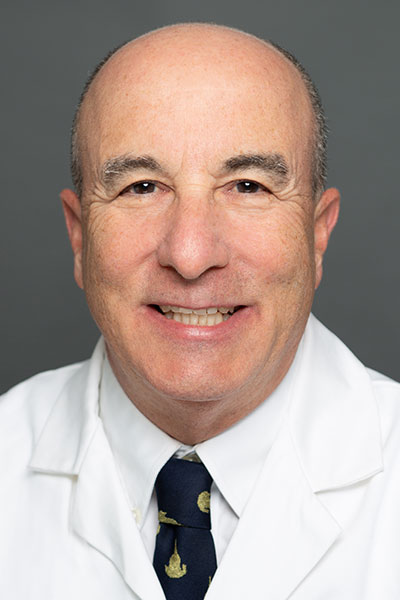
The Recognition Award for Scientific Accomplishments honors up to four individuals each year for outstanding scientific research contributions in basic or clinical arenas to enhance the understanding, prevention, and treatment of respiratory disease, critical illness, or sleep disorders. This year’s awardees are Scott H. Randell, PhD, Larissa A. Shimoda, MS, PhD, Carol Feghali-Bostwick, MS, PhD, and Patricia J. Sime, MD, FRCP, FACP, ATSF.
Dr. Randell is a professor of cell biology and physiology at the University of North Carolina in Chapel Hill, with a joint appointment in pulmonary and critical care medicine. He obtained a PhD in environmental health sciences from Johns Hopkins University and did a postdoctoral fellowship at Duke University studying lung developmental biology. He was a senior staff fellow at NIEHS, where he developed further expertise in airway epithelial cell biology and lung stem cells. He has over 220 total peer-reviewed publications, reviews, and book chapters, and a book editorship. He is on the editorial boards of two leading lung journals and is an active peer reviewer for journals, the NIH, and numerous national and international granting organizations. He serves on ATS committees and has organized and spoken at many national and international meetings. Dr. Randell directs the UNC Marsico Lung Institute/Cystic Fibrosis Center Tissue Procurement and Cell Culture Core, a nationally and internationally recognized resource, whose services are sought for collaboration, contract research, and training by academics, nonprofit organizations, biotech, and the pharmaceutical industry. His research focuses on lung epithelial stem cells, lung innate immunity, cystic fibrosis, and models for lung disease research. His recent work focuses on surmounting the challenges of developing novel therapies for cystic fibrosis and other lung diseases.
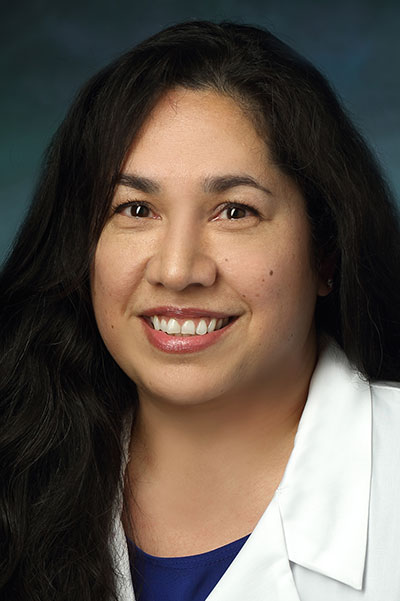
Dr. Shimoda is a professor and the director of research in the Division of Pulmonary and Critical Care Medicine at the Johns Hopkins School of Medicine. Dr. Shimoda completed undergraduate and graduate training at Marquette University, obtaining a PhD in biomedical engineering in 1995. Dr. Shimoda then moved to Johns Hopkins School of Medicine for fellowship training and joined the faculty there in 1998. Dr. Shimoda is a pulmonary vascular physiologist, with research interests including the cellular mechanisms contributing to the pathogenesis of pulmonary hypertension and endothelial cell barrier function. Dr. Shimoda is particularly interested in the non-canonical roles of channels and transporters in controlling pulmonary vascular cell function and the role of hypoxia-inducible factors in lung physiology and pathobiology. Her work has been continuously supported by funding from the NIH for over two decades and has been recognized with the Henry Pickering Bowditch Award Lectureship and Julius H. Comroe Jr Distinguished Lectureship of the American Physiological Society and the Robert F. Grover Prize from the ATS.
Dr. Shimoda has served as chair of the Respiration Section and as a councilor at the APS, chair of the Planning and Nominating Committees of the Pulmonary Circulation Assembly at the ATS, and as a regular member of several NIH study sections. Dr. Shimoda is committed to mentoring the next generation of pulmonary physiologists and increasing diversity in biomedical sciences, serving as a principal investigator or program director of an NIH T32 training grant for pre- and postdoctoral training in lung disease and of an NIH R25 training grant to provide summer research opportunities to diverse undergraduate students. Dr. Shimoda has substantial editorial experience, having served as an associate editor for Physiological Reports, reviewing editor for the Journal of Physiology and associate editor, and deputy editor, and currently editor-in-chief for the American Journal of Physiology-Lung Cellular and Molecular Physiology. In her free time, Dr. Shimoda likes to work in the yard and garden, cheer her favorite football team (the Raiders), spend time with family, and take her dogs for hikes.

Dr. Feghali-Bostwick is a distinguished professor in the Department of Medicine at the Medical University of South Carolina and the Kitty Trask Holt and SmartState Endowed Chair for Scleroderma Research. Dr. Feghali-Bostwick’s research has focused on mechanisms mediating the development and resolution of fibrosis in disorders such as systemic sclerosis and idiopathic pulmonary fibrosis (IPF). Her research has resulted in the identification of novel pro-fibrotic and anti-fibrotic factors. Her research team led the initial gene expression profiling of SSc lung tissues, identified novel autoantibodies associated with SSc-associated interstitial lung disease, and contributed to a better understanding of fibroblast biology in fibrosis. She conducted the only study of twins with SSc, and findings of low concordance in both monozygotic and dizygotic twins led to the observation that the disease is likely multifactorial with environmental factors playing an important role in the development of the SSc phenotype.
Dr. Feghali-Bostwick has authored and co-authored over 170 original manuscripts and several patents. In addition to research, Dr. Feghali-Bostwick is actively engaged in mentoring junior investigators. She established a national early career investigator mentoring program as well as an entrepreneurship training and coaching program. Dr. Feghali-Bostwick’s service includes the ATS RCMB advocacy, planning, and program committees. She also serves as the vice chair of the Board of Directors of the National Scleroderma Foundation. Dr. Feghali-Bostwick has received numerous awards for her research, service, and commitment to mentoring. Her recent honors and awards include the Association for Clinical and Translational Science Award for Contributing to the Diversity and Inclusiveness of the Translational Workforce and the ATS RCMB Andy Tager Award for Excellence in Mentoring. She was also elected to the National Academy of Inventors in 2023.

Dr. Sime is a professor and the William Branch Porter Chair of Medicine at Virginia Commonwealth University. She was born in Scotland and obtained her medical degree from the University of Edinburgh, where she then trained in general and pulmonary medicine becoming a fellow of the Royal College of Physicians. Dr. Sime’s desire to understand lung diseases led her to McMaster University in Canada. There she trained in the biology of inflammation and fibrosis, beginning her investigative career focused on understanding the mechanisms of fibrosis and inflammation. Her first faculty appointment was at the University of Rochester in 1999, where she became an independent principal investigator and then chief of pulmonary and critical care in 2010, subsequently becoming vice chair for research in the Department of Medicine. In 2019 she was recruited to Virginia Commonwealth University as chair of medicine.
Driven by their desire to improve the outcomes for patients with lung disease, Dr. Sime’s research team has focused on two major areas. The first is the pathogenesis of pulmonary fibrosis with a goal of identifying novel targets for therapy in diseases such as IPF, and silica- and radiation-induced lung disease. Beginning with her discovery of transforming growth factor beta as a critical driver of lung scarring, she has continued to pursue key pathogenetic mechanisms of fibrosis from dysregulated matrix regulation to recent studies focused on the role of abnormal metabolism. Her team’s overarching goal is to identify new targets for therapy, using translational approaches from in vitro fibroblast biology to clinical trials. In a separate area of scholarship, Dr. Sime has led novel studies in the resolution of inflammation and remodeling in COPD. Her team identified dysregulated inflammation resolution pathways in patients with COPD, and they are studying therapeutic interventions based on lipid mediators (called resolvins) in both smoke- and infection-induced inflammation. Dr. Sime’s approach to discovery is highly collaborative and she has been an active mentor for a broad range of clinical, basic, and translational researchers.
Outstanding Educator Award
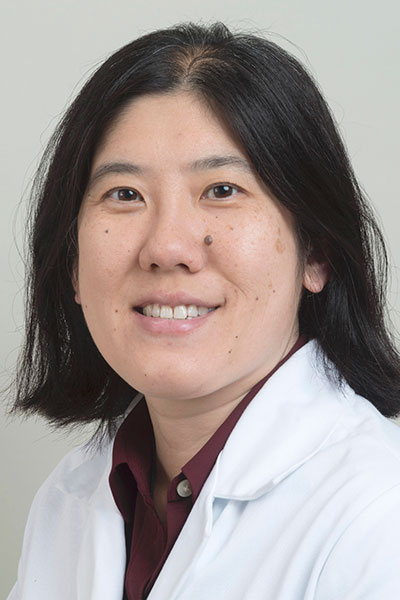
Tisha S. Wang, MD, ATSF
The Outstanding Educator Award recognizes lifetime achievements and excellence in clinical or research education and mentoring in the fields of pulmonary, critical care, or sleep medicine. This year’s recipient is Tisha S. Wang, MD, ATSF.
Dr. Wang received her medical degree from the University of Texas Medical Branch at Galveston, graduating with highest honors. She completed her internal medicine residency and pulmonary/critical care fellowship at the University of California, Los Angeles, before joining the faculty at UCLA in 2008. Dr. Wang is currently a professor of clinical medicine at the David Geffen School of Medicine at UCLA, where she serves as the senior executive clinical vice chair for the Department of Medicine. She is board-certified in pulmonary, critical care, and sleep medicine. In addition to providing clinical care in the ICU and clinic, Dr. Wang was the UCLA pulmonary/critical care fellowship program director for 10 years until 2021 and served as clinical chief of the UCLA Division of Pulmonary, Critical Care, Sleep Medicine, Allergy and Immunology until 2023. She was the co-director of the pandemic response team at UCLA and subsequently catalyzed the formation of the UCLA DOM Wellness Committee in 2021 to focus on physician well-being after noticing the effects of the pandemic on an already burned-out workforce.
In her academic career, Dr. Wang has had the privilege of educating and mentoring hundreds of residents, fellows, staff, and junior/mid-level faculty. She has been nominated for multiple teaching awards both locally and nationally and was awarded the UCLA Serge & Yvette Dadone Clinical Teaching Award in 2019. In 2020, she was honored as the recipient of the UCLA Sherman Melinkoff Award, which recognizes the “finest in doctor-patient relationships and medical education” and is considered the highest honor of the UCLA DGSOM. Dr. Wang was chosen as the 2022 California Thoracic Society “Woman of the Year ” and in April of this year, she graduated from the prestigious Hedwig van Ameringen Executive Leadership in Academic Medicine program.
In addition to her clinical work and leadership responsibilities, Dr. Wang conducts research on rare lung diseases with a focus on pulmonary alveolar proteinosis. She is the clinical director and vice president of the patient-based PAP Foundation. Dr. Wang has served as chair of the Education Committee for the ATS since 2020 with a seat on the ATS Board of Directors and is the current president of the California Thoracic Society. In addition to championing the well-being of physicians, her greatest joys in medicine have been focused on advocacy for women in medicine, medical educators, and patients with rare lung diseases.
Outstanding Clinician Award
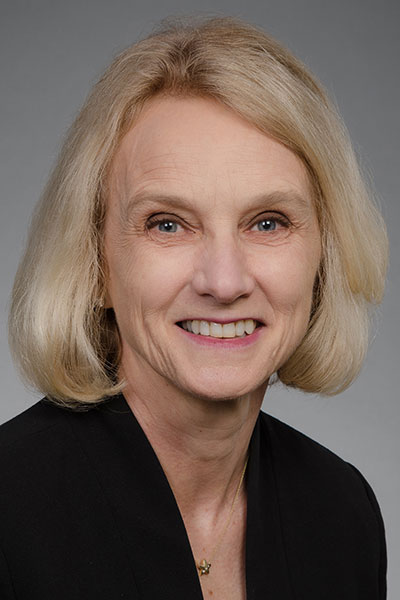
Moira L. Aitken, MD, FRCP, FCCP
The Outstanding Clinician Award recognizes a pulmonary, critical care, or sleep clinician who has made substantial contributions to the clinical care of patients with lung disease on a local or national level. Awardees spend 75 percent or more of their time providing direct patient care. Honorees also must be recognized by patients and families as caring and dedicated health care providers and by peers as having made substantial contributions to the clinical care of patients with respiratory disease.
The 2024 award recipient is Moira L. Aitken, MD, FRCP, FCCP, who was born near the fishing village of Buckie, on the east coast of Scotland. She received her medical degree from Edinburgh University and her initial post graduate training at the Royal Infirmary and Western General Hospital in Edinburgh. In 1982, she arrived at the University of Washington for fellowship training in pulmonary and critical care medicine. She developed a research focus in airway physiology and joined the UW faculty as the second female member of what was then known as the Division of Respiratory Diseases. Dr. Aitken co-founded the Adult Cystic Fibrosis Program at the UW in 1989 and served as program director for more than 30 years. She dedicated her career to improving the lives of people with CF through direct patient care, research, teaching, advocacy, and mentorship. When Dr. Aitken began this work, most patients with CF did not survive beyond early adulthood. Her caring nature and kind presence were comforting to patients and their families in these times and her empathetic manner was admired by trainees and colleagues.
Dr. Aitken fostered a multi-disciplinary approach to patient care and nurtured a productive environment for research and education. As a clinical investigator, she played an important role in the testing and implementation of new therapies for CF. Throughout her career, Dr. Aitken has had the great satisfaction of witnessing the profound impact of medical advances on the lives of her patients. Along the way, she inspired and mentored a generation of physicians and researchers who carry on her legacy.
Research Innovation and Translation Achievement Award

Martha A.Q. Curley, RN, PhD, FAAN
This year’s Research Innovation and Translation Achievement Award honors Martha A. Q. Curley, RN, PhD, FAAN. The award recognizes outstanding contributions to the advancement of respiratory research focused on specific innovations to improve health by advancing practice, policy, and health care delivery. Awardees may represent academia, industry, nonprofits, or government. Individual accomplishments are recognized along with the recipient’s role as a leader pursuing science through collaborative approaches — both interdisciplinary and inter-institutional.
Dr. Curley is a groundbreaking and internationally recognized nurse scientist who has made extraordinary contributions to advance the discipline of pediatric critical care. Currently, Dr. Curley is a professor of nursing at the University of Pennsylvania School of Nursing and serves as the Ruth M. Colket Endowed Chair in Pediatric Nursing Science at Children’s Hospital of Philadelphia. Her substantial body of innovative nurse-led and interdisciplinary research has transformed the care of critically ill children with acute respiratory failure, improved support for families of critically ill children, and elevated the scope of pediatric nursing on a global scale.
Dr. Curley has served as principal investigator on numerous multisite clinical trials funded by multiple branches of the NIH. Her landmark clinical trials and publications have advanced respiratory care for critically ill children, established first-ever pediatric-validated instruments to assess patient status and health risks, provided evidence to support nurse-led critical care interventions, and undergirded standards of care implemented across pediatric hospitals worldwide. Dr. Curley is best known in nursing for her extensive work in articulating nurse competencies centered on holistic patient and family needs and demonstrating the significant role bedside nurses play in achieving optimal patient outcomes. She is the author of many seminal publications including the book Synergy: The Unique Relationship Between Nurses and Patients.
Dr. Curley is a staunch supporter of early career scientists, and her mentorship transcends disciplinary and geographic boundaries. She is a member of the National Academy of Medicine and is recognized as a Living Legend in Nursing by the American Academy of Nursing. Dr. Curley earned a Master of Arts in nursing from Springfield Hospital Medical Center, a Bachelor of Science from the University of Massachusetts, a Master of Science in Nursing from Yale University, and a PhD from Boston College.
Research and Fellowship Awards
This year marks the 20th anniversary of the ATS Research Program. The program’s mission is to bolster new investigators as they launch their independent research careers and bring innovative solutions to patient care. Since 2004, the ATS Research Program has invested $24.8 million in research grants to early career investigators.
Register Today for ATS 2025

Register today for the ATS 2025 International Conference! Don’t miss the opportunity to experience this year’s premier respiratory health conference, May 16-21 in San Francisco. Join your colleagues to learn about the latest pulmonary, critical care, and sleep medicine developments. Not an ATS member? Join today and save on your conference registration!

